Who Is Anu (An)?
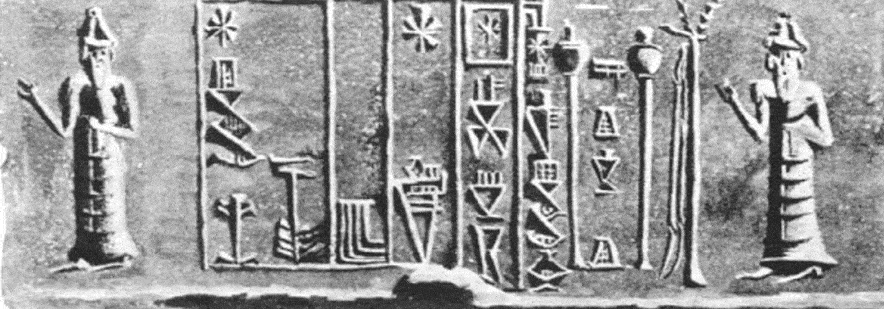
While you are learning all about the Anunnaki, you are going to stumble across a lot of different proper names for various gods and goddesses, one of which is “Anu,” or “An.” Many of these names are similar and can easily be mixed up if you do not take some time to learn the Sumerian family tree.
First things first—in case you are still quite new to researching the Anunnaki, I want to make sure you understand the basics before proceeding further.
Depending on whom you are speaking with, the “Anunnaki” may refer to either:
• A set of ancient Mesopotamian deities
• Space aliens who interacted with ancient cultures here on Earth
The mainstream view of course only recognizes the Anunnaki as fictitious Mesopotamian gods.
Those who support the alien theory equate the two, but disagree with the “fictitious” assertion.
Their belief is essentially that the Anunnaki are real, literal beings, and that what the ancient peoples of Mesopotamia referred to as “gods,” we would presently call “aliens.”
Clearly, that is our belief here at Annunaki.org.
Now, one of the most important Sumerian gods is the Sky Father, An, known interchangeably as “Anu.”
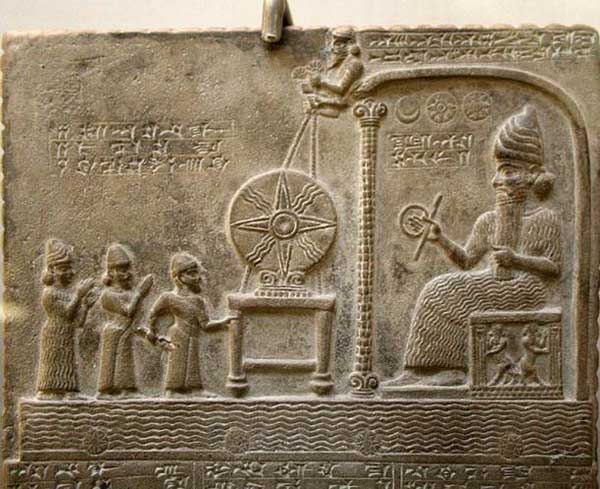
Anu, God of the Sky
There are a number of Sumerian tablets and texts which discuss Anu, but not all of them agree on every aspect of his existence (as is typical with any system of mythology). The earliest texts available for example do not explain where Anu came from at all—as if he was simply there. Later texts however state that he is the son of two primordial deities known as Anšar and Kišar.
As the Great Father of the Sky, Anu holds the highest position in the Sumerian pantheon—at least in name. In terms of power, he eventually shares his authority with Enlil and later Marduk (who also in some ways end up surpassing him).
In the Sumerian creation myth, heaven and earth were originally joined together. Anu had two consorts, Antu, Great Mother of the Sky, and Ki, the Earth Mother. He had children by both of them. With Ki, he had Enlil, Lord of the Air and Earth, and Nin-khursag, Lady of the Mountain. With Antu, he sired Enki, Lord of the Earth and Waters. These are all very prominent figures in Anunnaki mythology.
Note that there is some confusion over Ki’s identity. Ki is rarely mentioned in Sumerian texts, and it is unclear who she is and whether she was worshipped as a goddess.
Enlil cleaved apart the earth and heaven after he was born, separating the two forever. Ki and Enlil assumed direct authority over the earth. Anu held court in heaven.
I highly recommend that you look at a family tree diagram for the Sumerian pantheon at this point. You will see that there are a number of primordial gods who came before Anu, and also that he has many descendents through his children. This helps to give you a broader idea of the context of his reign. You can also follow the branches of the tree through to see how he is related to more distant descendents such as Ishtar.
Anu As a Source of Authority
As the original supreme Babylonian deity, Anu was seen by worshippers as the ultimate source of authority. He was responsible for conferring power on other deities as well as on mortal kings, which is exemplified through a number of stories in Sumerian mythology.
As one example, in the poem Inana and Ebih, Inana/Ishtar reports that, “An has made me terrifying throughout heaven.”
Whenever other deities were given powers of leadership, they would even go so far as to say that they had been given anûtu. This word quite literally translates as “Anu-power.”
In Enūma eliš, the Babylonian creation story, Marduk (son of Enki and Damkina) rises to the key position of power among the Anunnaki. When he does, his might is legitimized through a declaration among the gods: “Your word is Anu!” This phrase can be found in lines 4-6 of Tablet IV.
This is really quite extraordinary when you think about it. Anu’s power was so deeply respected that in many ways, Anu was power. It is very easy to read “Your word is Anu!” as “Your word is might!” or something similar along those lines. That was essentially what it meant.
In other words, even though Marduk had risen to a position of authority which eventually surpassed that of Anu, without Anu, his own power would have had no meaning. It was defined through Anu. In this sense, the idea of Anu continued to hold sway, even though the gods were now taking their marching orders from Marduk.
The Meaning of the Word “Anunnaki”
And that brings me around to a discussion about the meaning of the word “Anunnaki.” This is a source of some confusion, especially among those who believe that the Anunnaki are alien visitors.
The primary proponent of the Anunnaki theory was a Russian-born American writer named Zecharia Sitchin. Sitchin had some fascinating ideas, but to the mainstream detractors he was a notoriously horrendous translator.
This has caused many scholars to look down on his work and not take him seriously, despite his massive influence on pop culture and modern alien lore.
In his book The Twelfth Planet, Sitchin translates “Anunnaki” as “those who from the heavens came.”
Modern linguists say this isn’t quite right though.
Two closer translations would be “princely offspring,” or “offspring of Anu.” These are the correct translations which the majority of serious scholars agree upon.
While Sitchin’s translation may be off, in my opinion it is easy to see where he was coming from and why he thought that it was essentially correct. I think an argument cannot be made that his translation wasn’t totally illegitimate- it is possible to understand his sentiment and acknowledge that it was not 100% correct.
Sitchin probably did realize that “Anunnaki” meant “offspring of Anu.” He then took that and made it, “Those who from Anu came.” He then took that a step further, incorporating his understanding of Anu as Great Father of the Sky. Anu, as you know, reigned over heaven. So Sitchin simply took a literal approach, equating Anu to the Sky. From there, he could easily turn “Those who from Anu came” into “Those who from the Sky came.”
So is Sitchin’s translation wrong? Technically, maybe it is—but it was also an interpretive translation.
Depending on how you want to interpret Sumerian mythology, you could argue that on some level it makes a degree of sense. Anu was of the Sky, and the Anunnaki came from Anu—and therefore from the Sky. And if you believe that Anunnaki are aliens, you are already in a highly interpretive territory.
Key Points In Understanding Anu / Anu
Because Sumerian mythology can be complicated, especially when you are trying to figure out how it all fits together with the alien theory, I want to wrap this up by summarizing the key points that I have covered. That way you know the main takeaways.
• Anu, also known simply as “An,” is the Sumerian sky god.
• Anu is the son of Anšar and Kišar, and the father of Enlil, Enki and Nin-khursag.
• Anu is one of the most powerful Sumerian deities. His authority is so central to Babylonian mythology that the other gods evoke his name when power is conferred upon them. Even when Marduk surpassed Anu, the other gods said, “Your word is Anu!”
• The word “Anunnaki” is derived directly from Anu’s name, and translates properly to “offspring of Anu.”
• While Zecharia Sitchin technically mistranslates “Anunnaki” when he says it means, “Those who from the Sky came,” it is easy to see how this meaning connects directly to the true translation. Whether you see this as further evidence that the Anunnaki are aliens or not is totally up to your interpretation.
So now you are more familiar with one of the key players in Sumerian mythology.
Be sure to also read up on Enki, Enlil and the other gods so that you have a complete understanding of the Anunnaki!

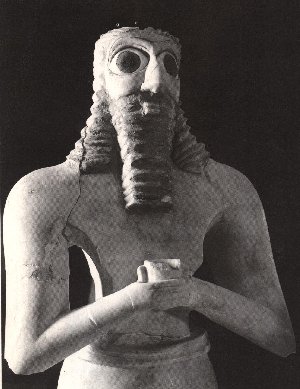
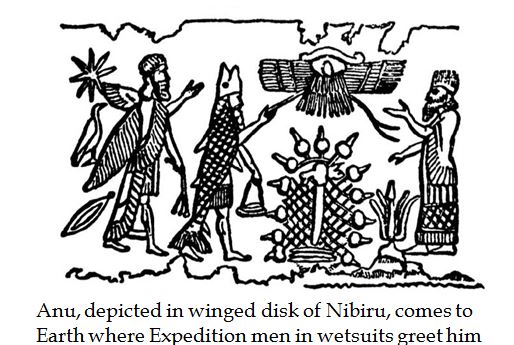

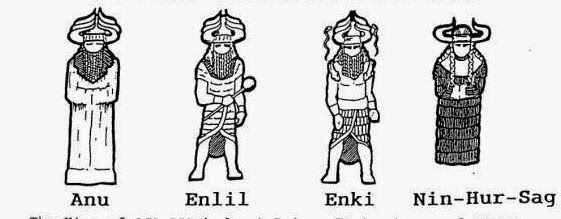
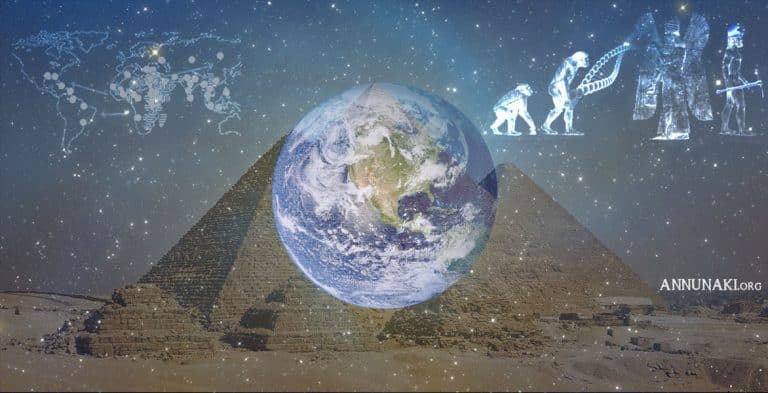
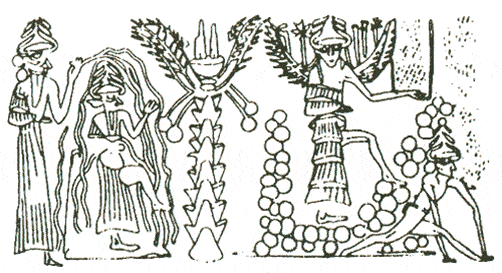
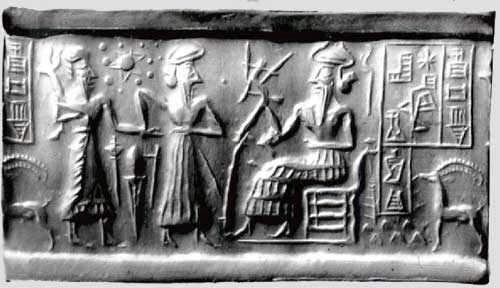
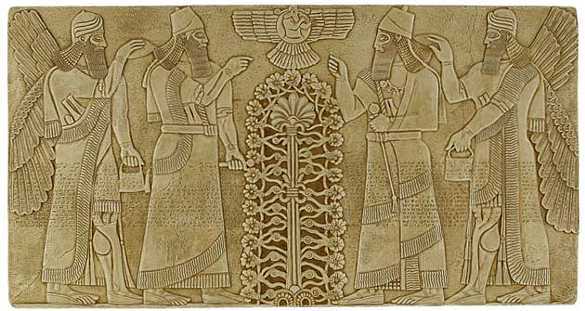
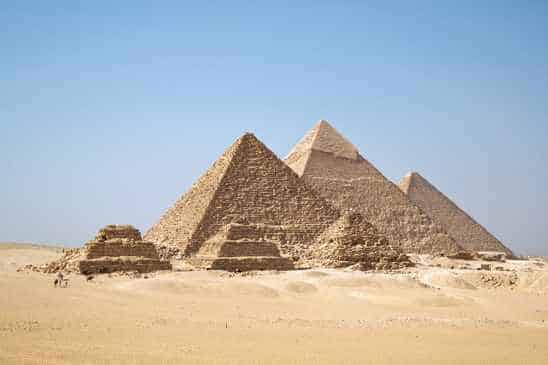
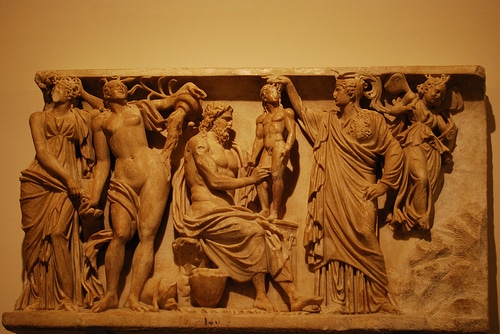
Very interesting, i would like to know more of the Anunnaki. Just got into it a few months ago and i find it facinated. Hope to hear from you, thank you!
Well, we must have come from somewhere! This theorie about aliens is quite sensible. After all, the technology must have come from somewhere, and its quite plausible. Anybody with a bit of sense and imagination can put one and one together. Just look at the planets und galaxies out there. We just cant be the only ones. I am a christian and i do believe. Maybe God or the Gods are still creating the rest. One day maybe we will be the human gods on other planets?
After listening to a Nephilum tell his story, the culture and history of the Annunaki seems to fit into Biblical history from the book of Genesis. The Sumerian account of the great flood and the story of Gilgamesh seem to have authenticity. I believe there is much more to our history than we know.The Watchers / Nephilum / Fallen angels / Annunaki /can all fall into the same category. They brought science and technology to humanity through a series of events . The Annunaki are different than we are as humans. Their DNA. is different , making them of far superior intelligence than humans.
Very interesting article. Where can I learn more about the god named An? I ask because the number 11:11 means the unity of God and man. Millions have seen this number, over and over, since the ’80s. For me, it was in 1991. I was then led to the book, 11:11, by Solara, a visionary of the 11:11 (www.nvisible.come) and met her, when she was still living near Washington, D.C. in Charlottesville, Va. In her books, she writes of the Tower of An and Orion’s Belt, and its connection to the 11:11. 11:11 does not belong to any religion; it is a universal number that indicates our time of completion is near. In other words, the Earth will be undergoing a momentous spiritual transformation, and we will ascend to a higher dimensional frequency. It’s not about aliens–it’s about God and man, working together as one, as we did in the ancient divine era. My concern is that the Annunaki are written about in negative terms mostly but, in keeping with Solara’s information, it is only about a positive change for mankind.
P.P.S. Per Solara:
AN
The Sacred Union of the Sun & Moon into One Being. Also: The merger of male and female polarities into Oneness which occurs within our own beings. Also: An ancient, great star lineage which corresponds with the central star in the belt of Orion presently called Al Nilam. Many of us are part of the Family of AN. The elders of AN are called the Annutara. Some of them walk among us today. The symbol for AN used to be a Sun above a reclining crescent Moon. Since the Second Gate Activation in 1993, this symbol has changed and the upright crescent Moon is now found within the Sun. They now share the same eye.
Part II
Ancient Usage: AN was an early God of Sun & Moon as One Being in ancient Egypt. The Temple of AN was located in Heliopolis which is now part of Cairo. The priests of AN also built Stonehenge at a later time. The Tower of Light of AN was located in the Andes Mountains of Peru. Civilizations created by AN have similar characteristics: they worship the Sun & Moon and are ruled by husband and wife who are also brother and sister.
If the Anu is the most high it may have relationship with Adam n Eve , but we have t know much bout the mother n father of Anu
Read the book it rule by secrecy by Robert Green at the end of the book you will find the chapters regarding the sumerian I have more to offer on the subject because I have been studying for last past 20 years and travels to Mesopotamia and Egypt also orient because of my research regarding the old knowledge as well the keys of light frist thing you need to have desired to received and to share because this great knowledge it not accessible to all …
It very hidden and you need to go step by step to overstand the Univers and to accept to change as well to correct our ADN because something did happen in the beginning I don’t want give all of you the true information but keep do your research until …….
Hi, I have been interested in Sumer history for a long time. Always looking for more info. thank you
Where does the whole “saturn” theory about it being a sun/satellite or being on the sumerian tablet fit into this whole sumerian aspect? Saturn was a big deal in the past, just like mythology. There must be a reason for it. And what is the REAL reason for wanting to travel to Mars so suddenly and rapidly? It is not just because Elon Must is bored.